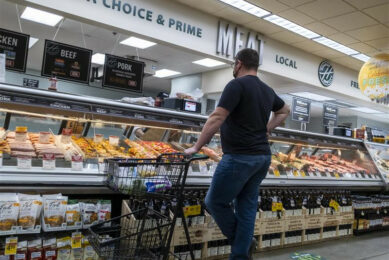Study: Incentive mechanisms for food safety control in pork supply chains
Food is not 100% safe, notwithstanding the control measures companies apply. Control on supply chain level can further improve food safety. Companies are searching for solutions to induce their suppliers to improve food safety control.
C.P.A. (Coen) van Wagenberg: Incentive mechanisms for food safety control in pork supply chains. A study on the relationship between finishing pig producers and slaughterhouses in the Netherlands.
This PhD-thesis analyses how bonus-malus systems can be used to achieve this. The research was conducted in the relationship slaughterhouse and pig producers. Livers of pigs infected with worms are unfit for human consumption and result in additional costs for a slaughterhouse.
This PhD-thesis analyses how bonus-malus systems can be used to achieve this. The research was conducted in the relationship slaughterhouse and pig producers. Livers of pigs infected with worms are unfit for human consumption and result in additional costs for a slaughterhouse.
©
Until 2005 these costs were compensated by an insurance. The liver of each pig was insured with the same premium irrespective of the inspection result. In 2005 a reduction in price of a pig with a lesioned liver paid to a pig producer was introduced.
©
©This resulted in a drop of liver lesion prevalence from 9% to 5%. Many pig producers underestimated the liver lesion prevalence of their pigs. They also used different methods to control the safety of the livers. Bonus-malus systems can improve pig meat safety by rewarding safe behaviour of pig producers and punishing unsafe behaviour.
©
Source: Wageningen University
©











